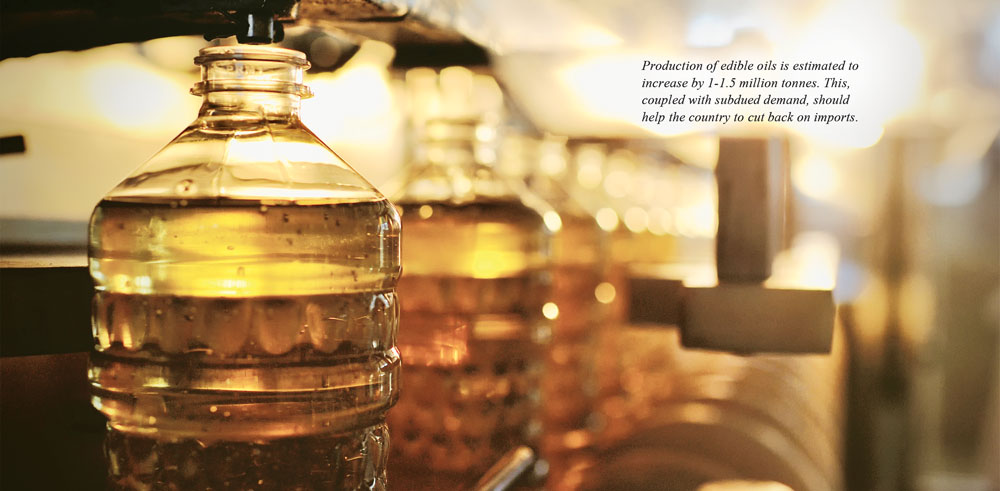



The world over, 2020 proved to be challenging on all fronts because of the Covid-19 pandemic. Like other countries, India had to find coping mechanisms to keep its economy going. There were several developments in relation to its oilseeds and palm oil trade over the year.
January
Pursuant to the ASEAN Free Trade Agreement (FTA), India reduced import duty on CPO from 40% to 37.5% with effect from Jan 2.
On Jan 8, the Directorate General of Foreign Trade issued a notification amending the import policy for refined palm oil and palm olein from ‘free’ to ‘restricted’ status. This was a move to reduce edible oil imports.
As a consequence of strained bilateral diplomatic ties, Indian traders and refiners halted crude palm oil imports from Malaysia from mid-January.
February
Further changes were made to import duties in the national budget on Feb 1. With the ASEAN FTA and Malaysia-India Comprehensive Economic Cooperation Agreement (MICECA) in place, the final duty position was:
March
As Covid-19 cases multiplied, an experimental one-day national lockdown was imposed on March 22. From March 25, a longer lockdown took effect – first for three weeks, then for several months.
This had a cascading effect on the economy. The hotel, restaurant and café (HORECA) and food sectors bore the brunt of the slump in business. The HORECA sector, a massive consumer of palm oil, saw its off-take slow down to a trickle. But consumption of soft oils rose, as the preferred cooking medium in households.
May
India resumed its palm oil imports from Malaysian sources, following the resolution of geo-political tensions. By now, India’s stock of edible oils had run down. The price advantage offered by Malaysia was a plus point in increasing imports from this source.
On May 12, India announced its Atma Nirbhar Bharat Abhiyan (Self-reliant India Campaign) to spearhead its economic stimulus package, and to guide strategies during and after the Covid-19 pandemic.
The intention is to promote local agriculture and industries toward self-sufficiency. The government formulated a strong set of forward-looking guidelines – including stepping up oilseeds production – to help India become less dependent on imports of edible oils.
June
Having slowed the march of the Covid-19 virus, the government began phasing out the nationwide lockdown in stages, with Unlock 1.0 taking effect from June 8. This enabled the gradual resumption of economic activities.
The monsoon arrived on time and spread out evenly. It accelerated sowing, and the highest yields in three years are expected for major crops like rice, sugarcane and soybean. Production of groundnuts saw a substantial increase, but it is with mustard that the most significant rise in output is expected.
Production of edible oils is estimated to increase by 1-1.5 million tonnes. This, coupled with subdued demand, should help the country to cut back on imports.
September
On Sept 17, three farm Bills were passed in the Parliament. This was to usher in a new era in agriculture by dismantling archaic rules. The proposals gave farmers the right to sell outside the ambit of their Agricultural Produce Marketing Committee and anywhere in the country. The intention was to empower farmers and afford protection for contract farmers. The Essential Commodities Act was also tweaked. However, the proposals led to protests in some parts of the country.
October
Several important festivals were observed, but in low-key fashion due to Covid-19 safety protocols. The consumption of savouries is a significant highlight of celebrations, usually leading to a spike in the consumption of edible oils. However, inflation in the international market affected the price of edible oils. The prices in October were seen to be 30% higher than in the previous year.
November
The government reduced the import duty on CPO from 37.5% to 27.5% with effect from this month. Duty was retained at 45% on RBD palm olein and at 54% on RBD palm oil.
December
Unlock 7.0 was the last of the lockdown phase-outs for the year. Among other provisions, restrictions on the movement of goods and people within and between states were lifted. Anticipating the rollout of locally produced vaccines, India looked forward to better protection of its population from the Covid-19 virus.
Although the situation seemed to be on track, the second wave has since struck with a vengeance and India has been pushed back by many steps. It is hoped that India will overcome the crisis, and that the march forward of the economy and the people will resume in earnest.
Bhavna Shah
MPOC India
